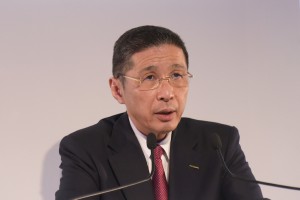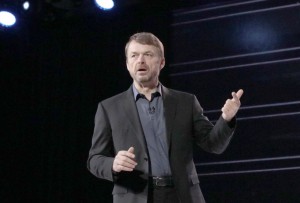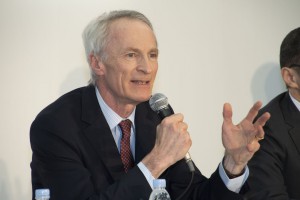Less than two weeks after proposing a merger-of-equals with Renault that would have formed the world’s third-largest automaker, Fiat Chrysler Automobiles withdrew the offer late Wednesday citing government interference in the proposed deal.
“We went in different directions very rapidly,” said a source close to the ongoing negotiations, noting that only three hours earlier the two carmakers had been preparing to release a joint statement indicating that the Renault board had voted in favor of the proposal and would begin taking the necessary steps to complete a merger – a process expected to take 12 to 18 months.
Going into the negotiations, it was clear there would be some potential obstacles, notably finding a way to preserve Renault’s long-standing relationship with Japanese automakers Nissan and Mitsubishi. But, in the end, FCA formally pointed blame for the collapse of the deal at the French government that is Renault’s largest shareholder.
“It has become clear that the political conditions in France do not currently exist for such a combination to proceed successfully,” FCA said in a statement.
Fiat Chrysler has been looking for a merger partner almost from the moment the company was formed shortly after the U.S. arm emerged from bankruptcy nine years ago. FCA’s late CEO Sergio Marchionne approached several erstwhile partners, including giants General Motors and Volkswagen, only to be repeatedly rebuffed. It came down to his successor, Mike Manley, to actually bring a deal within reach.
On May 27, FCA issued its proposal after months of conversations that began on a much smaller scale, the two companies initially looking at opportunities that included joint product development.
(Only days earlier, Renault was expected to approve the proposal. Click Here for more.)
The Italian-American automaker took pains to say it wasn’t positioning itself as an alternative to Nissan or Mitsubishi. It emphasized that, of the 5 billion euros in annual synergies expected from the merger, 1 billion would accrue to the Japanese side of the Renault-Nissan-Mitsubishi Alliance.
After initially expressing skepticism, Nissan officials had been showing more interest in the deal in recent days, the source close to the negotiations indicating they had gone “beyond our expectations.”
(Renault reveals Fiat Chrysler offer to Nissan. Click Here for the story.)
The more difficult challenge was salving the concerns of the French government, which is Renault’s largest shareholder, with a 15% stake and even larger voting rights. Within hours after FCA made its original proposal, the French finance minister had laid out a list of demands which, among other things, required the merged company to retain all jobs and plants on French soil. Over the coming days, still more demands were put on the table, increasing the government’s control over the merged company, defining where it would have its headquarters and more.
The “final” hurdle came during a Renault board meeting originally expected to be concluded on Tuesday but which stretched on, well into a second day. As many had expected the left wing CGT Union representing Renault’s French workers eventually voted against the proposal, according to a report in Reuters. Nissan, which itself owns a stake in its French partner wound up abstaining. All of the remaining board members gave the proposal a thumbs-up – except for the hand-picked government representatives who called for another delay so they could fly to Japan for further consultations with Nissan.

Though Nissan CEO Hiroto Saikawa was considered a wild card, Nissan abstained from a vote on whether to approve the merger.
Faced with the prospect of another week or more delay, FCA’s CEO Mike Manley and Chairman John Elkann decided it was time to withdraw the offer, according to the source and confirmed by other news reports.
There remains “a very cordial relationship” between the two companies and, in particular, between FCA’s Manley and Renault Chairman Jean-Dominique Senard. The 66-year-old chief executive is now finding himself “in a very difficult position,” said an industry veteran who had been linked to several of the carmakers involved in the negotiations
Senard was pushed into the post by the French government after former Renault CEO Ghosn tendered his resignation following his arrest on financial corruption charges. But Senard now finds himself on the outs as a strong supporter of the merger proposal.
“It’s unfortunate this proposal failed so quickly,” said Karl Brauer, an analyst with Kelley Blue Book, “though it’s better than having it drag on for weeks or months and then fail.
(For our initial coverage of this potentially “transformative” merger, Click Here.)
What will happen next is uncertain, the Fiat Chrysler insider said one should “never say never,” and that it is possible clearer heads could prevail, though it is unlikely the merger proposal would quickly be revived. Fiat Chrysler could also look at other merger possibilities – news reports earlier this year suggesting the company might want to tie up with the other major French automaker, PSA. CEO Manley, meanwhile, said he was more than willing to continue operating independently during a media roundtable at the North American International Auto Show in Detroit last January.



FCA is better off not being in bed with a company with those 2 loser Japanese automakers, Nissan and Mitsubishi. It would be a drain on resources to try and turn that titanic around.
I agree Dave, but more so on the whole Ghosn / Nissan saga. I would not want to be tied to that alliance until that has been put to bed, especially with Saikawa wanting Nissan to be more independent.
I would rather FCA be tied with Renault than PSA. I think in any event FCA and it’s companies would get drained of cash quickly.